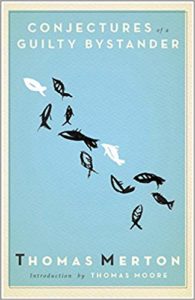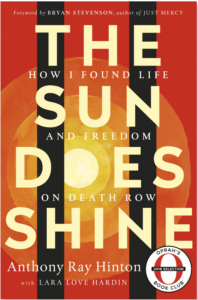EJI
EJI – Ethics, Journalism…and Empathy.
April 29, 2020‘Without empathy, journalism is lost.’ -Glen Scanlon
‘We were looking the wrong way. We had failed and were starting from scratch – trying to build relationships in the most awful circumstances.
All great journalism is about connecting with people, telling their stories with due respect and care. Great journalism and leadership needs empathy.’
‘This is the first, and incredibly important, place to help set the tone of our coverage, to talk about respect for the victims, supporting our teams and ensuring they are safe. To emphasise what I expect from our senior leaders, how they work together and with our people. You can’t show empathy without taking the time to understand what others are going through.
In these situations, leaders need to bring calm and consistency when all feels unstable.
Leaders need to ensure people have the support and room to do their work. Forget about what other media outlets are doing. Tell your staff this too. Have the strength to focus on what your people need and the stories you are trying to tell. If you’re slipping into the habits of ‘journalism at any cost’ you, the victims and their stories all lose.
This kind of coverage has an impact on everyone. You should be encouraging the sharing of emotion. Don’t be scared of people’s vulnerability – embrace it and your own. We took the practical step of immediately setting up counselling for staff. At times like this, trust comes from being empathetic.
Ultimately, you need to talk about values, not just the nuts and bolts of coverage. They give shape to everything. Our mantra was clear – it’s about the people. They are us.’
So everyday we split our resources into different groups – people are given time to build relationships and follow unique angles; some are on the daily round of important official announcements; others research deeper angles at a national level and build new material.
“What worked really well was the relentless focus on reporters’ welfare and that constant focus on telling the stories of the victims. It was like a mantra when people were tired; tell the stories of people involved. It was simple and true and decent and right. And we all tried to follow it.”
“For about a month we were regularly reminded to get support and sing out if we were struggling, but then people started moving on.
“The main thing companies can do for reporters covering trauma is to foster a safe environment for open kōrero [to tell, say, speak, read, talk, address] about how they’re feeling. It’s isolating enough having to report on such an event (you return to your normal life and no one quite understands what you’re up against) so it’s important to feel like it’s safe to reach out to your colleagues, speak about your mental health and ask for help when you need it.’
‘A famous journalism quote says our work is about speaking truth to power. I don’t believe this is enough.
We need to better represent the under-represented. We also need people from these communities to be encouraged into journalism.
The current Covid-19 crisis is a perfect example. Those with the least voice will suffer the most.’
https://ethicaljournalismnetwork.org/without-empathy-journalism-is-lost
‘The Politics of Death’
November 11, 2019V E T E R A N S D A Y
Thomas Merton:
In moments that appear to be lucid, I tell myself that in times like these there has to be something for which one is willing to get shot, and for which, in all probability, one is actually going to get shot. What is this? A principle? Faith? Virtue? God? The question is not easy to answer, and maybe it has not answer that can be put into words. Perhaps this is no longer something communicable, or even thinkable. To be executed today (and death by execution is not all uncommon) one has no need to commit a political crime, to express opposition to a tyrant, or event to hold an objectionable opinion. Indeed, most political deaths under tyrannical regimes are motiveless, arbitrary, absurd. You are shot, or beaten to death, or started, or worked until you drop, not because of anything you have done, not because of anything you believe in, not because of anything you stand for, but arbitrarily: your death is demanded by something or someone undefined. Your death is necessary to give apparent meaning to a meaningless political process which you have never quite managed to understand
-Conjectures of a Guilty Bystander
Equal Justice Initiative
‘African Americans bravely served in the U.S. military for generations. But instead of being treated as equal members of society, thousands of black veterans were accosted, attacked, or lynched.’
https://eji.org/news/remembering-black-veterans-and-racial-terror-lynchings
~
Society of Professional Journalists
“Aside from deep understanding and technical knowledge of the military and veteran issues, vets bring with them objectivity, neutrality, and ability to work in crises—all valuable attributes for newsrooms.”
The new nonprofit Military Veterans in Journalism wants to bring more military knowledge and experience into the media
Since the attacks of 9/11, the United States has been in a perpetual state of fighting, in places like Afghanistan, Iraq, Syria, Yemen, Somalia, and Libya. About 7,000 American troops have been killed and at least another 50,000 wounded. One study estimates the U.S. federal price tag of the Iraq and Afghanistan conflicts at $5.9 trillion.
Despite more than 18 years of war, America’s newsrooms have been shockingly negligent in hiring reporters who know these conflicts and their impacts best—our veterans.
Only 1.1 percent of media workers in the U.S. are post-9/11 military veterans while about 7 percent of Americans have served in the military, according to U.S. Census Bureau data.
https://nieman.harvard.edu/articles/we-need-more-veterans-in-americas-newsrooms/?utm_sq=g8r4t135ev&utm_source=Twitter&utm_medium=social&utm_campaign=spj-tweets&utm_content=Articles
Justice education.
June 14, 2018The Sun Does Shine: How I Found Life and Freedom on Death Row. The book is now a best seller on a number of lists including the New York Times Book Review and Amazon. urrent EJI [Equal Justice Initiative] staff member and former client, Anthony Ray Hinton, spent 30 years on death row for a crime he did not commit. His memoir is a powerful and revealing story of hope, love, and justice.
Richard Rohr, Center for Action:
Commitment to Nonviolence
Violence is awful. Violence is ugly. Violence is the saddest of human acts. As [Pope] John Paul stated, “War is a defeat for humanity.” It is so very difficult to lead people into a willing critique of their politics, their country, their allegiances, without some awareness of how violence is so often the handmaid of greed and power.
When our lives are active and occupied in the name of doing good, there is little space for violence and doing harm.
Community
Community is the most neglected and probably the most difficult ingredient for us to hold to in the U.S. context. And for the most obvious of reasons—we have come to worship at the altar of independence, individualism and autonomy. As much as there is a deep hunger for connection, common purpose, and kindred hearts, there is a merciless, deep-rooted entrenchment in the forces of competition, freedom and self-rule.
As you might guess, when I say community I do not mean the bowling community, or even the church bowling community. Rather, I mean a community that makes very intentional commitments, including those I have mentioned so far: engagement with those of the margins, justice education or formation, simplicity, prayer, and peacemaking.
We must imagine what peace and justice look like on this earth, and we must begin the work of crafting structures, institutions, human realities that are the antithesis to division, hate, greed and scarcity, that anticipate and cultivate justice and goodness and peace.




